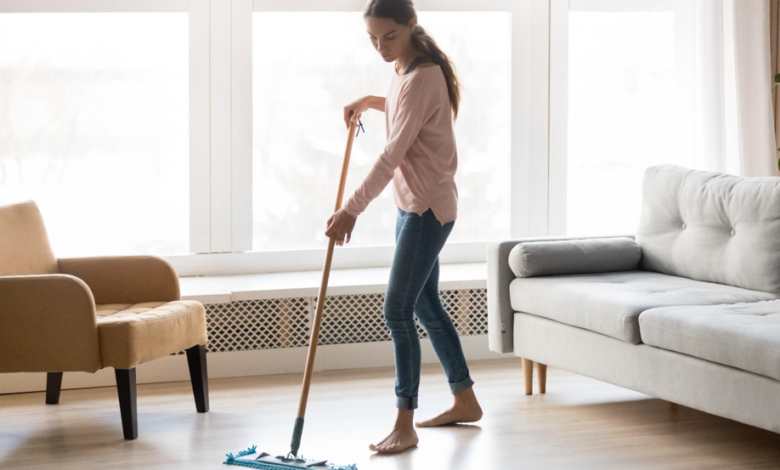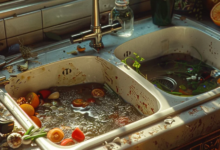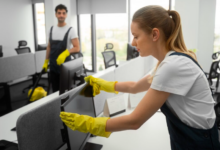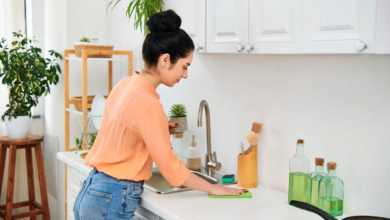Helpful House Cleaning Tips for Seniors and Their Families

Even if an older loved one appears healthy and independent, they may quietly struggle with household tasks—especially cleaning. Seniors often don’t bring it up out of pride or fear of seeming incapable, but keeping their home clean is critical for both their safety and well-being.
A clean, clutter-free environment can help prevent falls, reduce exposure to germs, and make daily life more manageable. Whether you’re a caregiver or a concerned family member, the following housekeeping strategies can help make life easier for the senior in your life—without adding unnecessary stress.
1. Make Cleaning a Routine
Consistent cleaning, as recommended by English Maids, can make a major difference in a senior’s ability to remain at home comfortably. It reduces the buildup of allergens, keeps pests at bay, and helps prevent illness.
The key is to make cleaning part of a routine—not something that feels overwhelming. Turn it into a daily habit by pairing it with enjoyable activities, like playing favorite music or setting a timer to create a “cleaning challenge.” Making it feel less like a chore and more like a part of everyday life can help your loved one stay motivated.
See also: Professional floor installation enhances home beauty and lasting value
2. Don’t Go It Alone—Get the Family Involved
Even seniors who are fully capable may find household cleaning physically exhausting. Instead of leaving them to handle it on their own, rally the family to help. A few extra hands can make a big difference and help maintain a clean space without wearing out your loved one.
You can make it a family event—divide up the tasks and enjoy some quality time while you work together. In many families, shared activities like this become treasured traditions—and you might even get a home-cooked meal out of the deal.
3. Break Up Tasks with a Weekly Cleaning Schedule
Trying to deep-clean an entire house in one day isn’t practical for most people—especially older adults. Breaking household chores into smaller tasks spread throughout the week makes the process much more manageable. Here’s an example of a simple weekly cleaning plan:
- Monday morning: Wipe down kitchen counters and clean the bathroom
- Tuesday evening: Vacuum living room rugs and floors
- Wednesday morning: Wipe windows and mirrors
- Thursday afternoon: Do laundry and change bed linens
- Friday morning: Sort mail and organize cluttered surfaces
This approach makes cleaning less overwhelming while still keeping the home in good condition.
4. Choose Safer, Natural Cleaning Products
Commercial cleaning products can be effective, but many contain strong chemicals that can irritate the skin, lungs, or eyes—especially in older adults with sensitivities. Harsh products can also damage surfaces and appliances over time.
Consider switching to safer, natural cleaning alternatives. Many everyday items you already have at home work just as well:
- For bathrooms: Combine baking soda and water into a paste to clean sinks, tubs, and tiles.
- For kitchens: Mix one cup white vinegar with one cup water and 10–15 drops of essential oil (such as lemon, lavender, or tea tree) to create a natural disinfectant.
These alternatives are simple, effective, and gentler on both your loved one and their home.
5. Prioritize High-Touch Surfaces
When time and energy are limited, it’s best to focus on the areas most likely to harbor bacteria. These include:
- Kitchen and bathroom countertops
- Doorknobs and cabinet handles
- Toilets and flush handles
- Light switches
- Remote controls and phones
- Dining tables
- Dishes and utensils
- Floors, especially in high-traffic areas
A regular wipe-down of these spots can significantly reduce the risk of illness without requiring hours of cleaning.
6. Use Tools That Make Cleaning Easier
Mobility and balance can become more of a challenge with age, so it’s important to clean smarter—not harder. Equip your loved one with tools that reduce the need for bending, stretching, or climbing:
- Long-handled dusters
- Lightweight vacuums
- Swiffer-style mops
- Non-slip step stools (used with assistance)
And don’t hesitate to ask for help with harder tasks—like cleaning ceiling fans or light fixtures. There’s no need to risk injury for a chore that can be delegated.
Final Thoughts: A Clean Home Supports Independent Living
The goal of keeping a home clean isn’t perfection—it’s comfort, safety, and peace of mind. When you prioritize small, consistent efforts, cleaning becomes a form of care rather than a burden. Whether your loved one tackles it themselves, gets help from family, or brings in professionals from cleaning services in Temple, TX, the result should be a home that supports independence and feels like a sanctuary.
Asking for help, using tools, or hiring professional cleaners isn’t a sign of weakness—it’s smart, proactive self-care. By working together and using thoughtful strategies, you can help your senior loved one stay safe, happy, and at home for as long as possible.






